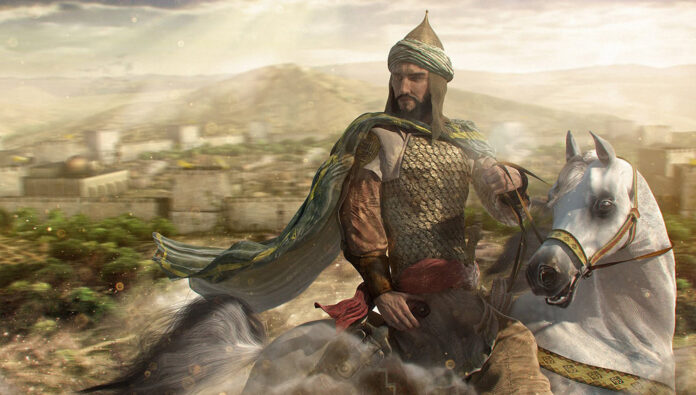Mehmet Kucuk
Speaking to many of our people, I often observe confusion about where to place Salahaddin Ayyubi, also known in Kurdish as Salah ad-Din.
Salahaddin Ayyubi was the founder of the Ayyubid Dynasty, which ruled the Middle East from 1171 to 1250. He is most famous for freeing Jerusalem from the Crusaders, a victory that made him a respected commander not only in Middle Eastern history but in the history of all the world.
In our nationalist debates, we struggle to find Salahaddin’s rightful place. Some argue against claiming the Ayyubid dynasty in Kurdish history because they say “it did not unite the Kurds or establish an independent Kurdistan”. Others see Salahaddin as an example of someone who sacrificed Kurdish independence for the victory of Islam.
In reality though, these debates are not truly about Salahaddin himself. They are about the choices we, as Kurds, face today. In the absence of a Kurdish state—one that can advocate for Kurds, defend against enemies, and fight for our interests—we find it difficult to make the decisions we must make as a nation.
Was Salahaddin a Kurd? Without a doubt, he was. His dynasty spoke Kurdish and was originated from Kurdistan. They were proud of their heritage. However, their kingdom did not rule over Kurdistan or govern our people. Instead, the Ayyubids ruled over a multi-ethnic and multi-religious geography that was not Kurdish, nor did they rule over Kurdistan. The Ayyubid Dynasty had no mandate to act as a nationalist Kurdish state. It is crucial to distinguish between a Kurdish dynasty ruling a diverse kingdom and today’s nationalist concept of a Kurdish state ruling over Kurdistan.
When we talk about an independent Kurdistan today, we mean a nationalist state “by the Kurds, of the Kurds, for the Kurds”.
Our region is in turmoil today. Following Hamas’ October 7 attacks on Israel, the conflict has spread from Gaza to southern Lebanon and finally Iran. This is the geography surrounding Kurdistan. Everything that happens here affects us directly. Ideally, a Kurdish state would have full political control over what happens in our neighborhood. Only with such control we can be secure in our homeland. However, we lack a state of our own, and today our region is on fire.
What should our people do when our region is on fire? The right mindset is that of a patriarch. What would you expect from your father when the neighborhood is burning, and there is a risk the fire could spread to your home? Naturally, you would expect him to protect the family and home first, then to be a good neighbor and help others once your home is safe.
Today, we Kurds are the most vulnerable in all the Middle East. We do not even have a home of our own, and the land we inherited from our ancestors is being pillaged by occupying forces. We have no allies who takes sides with us in our struggle for independence. Contrary, many of our neighbors are responsible for our suffering.
We should not follow their example. Instead, we must look out for ourselves.
When your house is at risk of burning, no one will expect you to abandon it to help others. Kurdistan has been burned to the ground too many times. Our priority should be building a state of our own—a state by us, for us. In the absence of such a homeland, the best we can do while the region burns is to pray the fire does not reach us, and be prepared to protect our own if it does.
We have no side in the current regional conflicts—not because we do not know to separate right from wrong, but because our responsibility lies with our people, our home, and our land.





